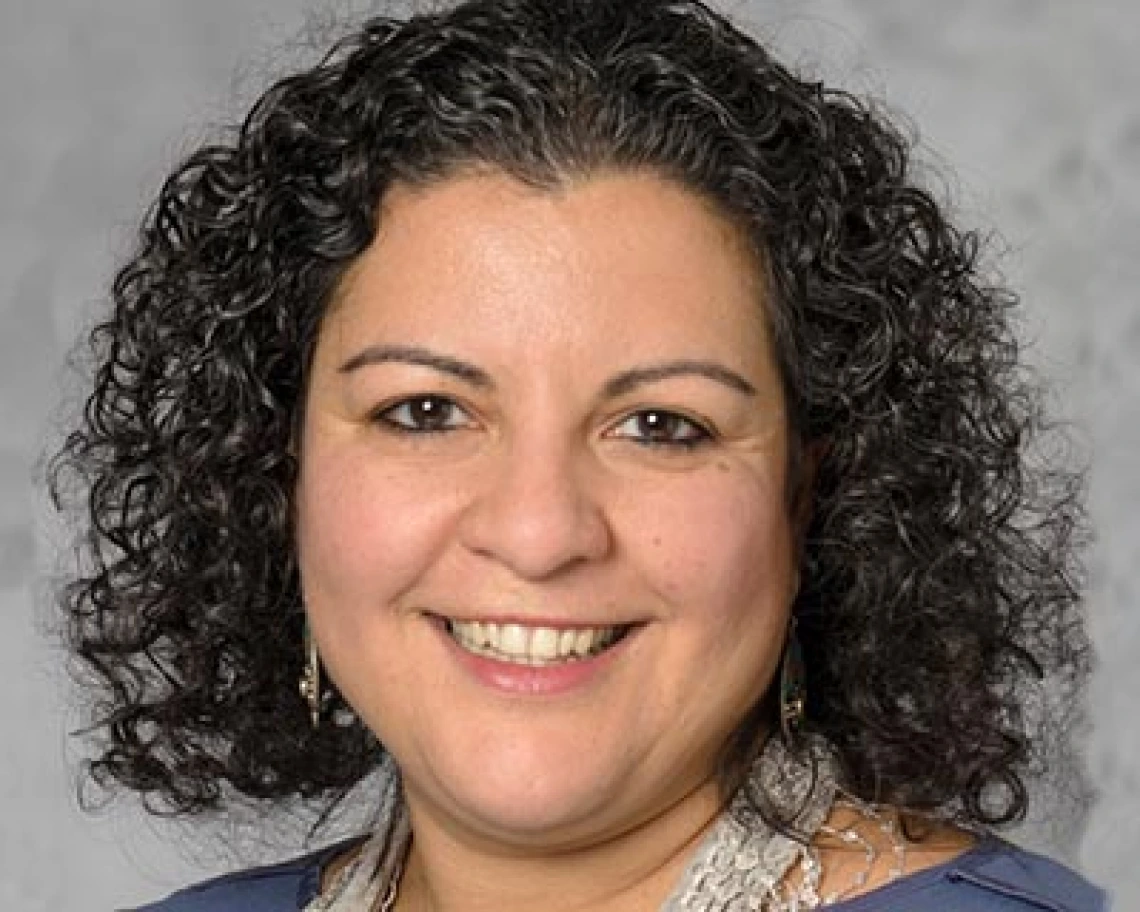UArizona, Tufts Professors Presented with Innovation Awards by Andrew Weil Center for Integrative Medicine

TUCSON, Ariz. – The University of Arizona Andrew Weil Center for Integrative Medicine (AWCIM) presented its 2020 Integrative Medicine in Residency (IMR) Innovation Award to Noshene E. Ranjbar, MD, Department of Psychiatry, University of Arizona College of Medicine – Tucson, and Andrea Gordon, MD, Department of Family Medicine, Tufts University School of Medicine.

Awardees were selected by the AWCIM Advisory Board with awards bestowed during the 2020 IMR Faculty Development Meeting, convened from Tucson virtually via Zoom in April due to the COVID-19 pandemic.
Dr. Ranjbar led development of the IMR-psychiatry elective at the UArizona in 2015, which has grown steadily since then. All residents now have exposure to integrative psychiatry and a mind-body skills group, as well as 10 hours of lectures on integrative psychiatry topics. She also directed efforts to create the UArizona Integrative Psychiatry Fellowship, a 1-year in-person program that also began in 2015.
Dr. Ranjbar is a UArizona assistant professor and director of the Integrative Psychiatry Clinic at Banner – University Medical Center South. She serves as division chief for child and adolescent psychiatry, as well as training director for the UArizona Integrative Psychiatry Fellowship. In addition to integrative psychology and mind-body medicine, her interests include health disparities, with a focus on Native American and immigrant mental health. Dr. Ranjbar is involved in advocacy for refugees seeking asylum to the United States. She also serves as a faculty member in Washington, DC, at the Center for Mind-Body Medicine where she is involved in building health promotion programs within Native communities.
 Meanwhile, Dr. Gordon was recognized for her efforts that grew from what began as a two-week IM residency rotation into a curriculum woven throughout a three-year residency. “After years of innovation and multiple iterations,” she said, “Tufts has an integrative medicine (IM) curriculum that is remarkable in how unremarkable it is to our residents. IM is just another part of core family medicine education – part of the water in which our learners swim.”
Meanwhile, Dr. Gordon was recognized for her efforts that grew from what began as a two-week IM residency rotation into a curriculum woven throughout a three-year residency. “After years of innovation and multiple iterations,” she said, “Tufts has an integrative medicine (IM) curriculum that is remarkable in how unremarkable it is to our residents. IM is just another part of core family medicine education – part of the water in which our learners swim.”
A Tufts associate professor, Dr. Gordon is director of integrative medicine at the Tufts University Family Medicine Residency Program at Cambridge Health Alliance in the Boston area.
Awardees were nominated faculty leaders from more than 80 residencies that incorporate AWCIM Integrative Medicine in Residency curriculum. Each has shown innovation in one or more of the following: IM curriculum creation, development, expansion, or sustainability. The IMR program began in 2008 and is made possible in part with funding from the Weil Foundation.
# # #
NOTE: Photo available upon request.
About the Andrew Weil Center for Integrative Medicine
The Andrew Weil Center for Integrative Medicine (AWCIM) at the University of Arizona is leading the transformation of health care by creating, educating and actively supporting a community that embodies the philosophy and practice of healing-oriented medicine. AWCIM is internationally recognized for its evidence-based clinical practice, innovative educational programs and research that substantiates the field of integrative medicine and influences public policy. Since its creation in 1994, AWCIM’s vision of making integrative care available to all is being realized worldwide: AWCIM graduates are now guiding more than 1 million patients to take a greater role in their health and healing. For more information: awcim.arizona.edu (Follow us: Facebook | Twitter).
About the University of Arizona College of Medicine –Tucson
The University of Arizona College of Medicine – Tucson is shaping the future of medicine through state-of-the-art medical education programs, groundbreaking research and advancements in patient care in Arizona and beyond. Founded in 1967, the college boasts more than 50 years of innovation, ranking among the top medical schools in the nation for research and primary care. Through the university's partnership with Banner Health, one of the largest nonprofit health care systems in the country, the college is leading the way in academic medicine. For more information, visit medicine.arizona.edu (Follow us: Facebook | Twitter | Instagram | LinkedIn).
About the University of Arizona Health Sciences
The University of Arizona Health Sciences is the statewide leader in biomedical research and health professions training. UArizona Health Sciences includes the Colleges of Medicine (Tucson and Phoenix), Nursing, Pharmacy, and the Mel and Enid Zuckerman College of Public Health, with main campus locations in Tucson and the Phoenix Biomedical Campus in downtown Phoenix. From these vantage points, Health Sciences reaches across the state of Arizona, the greater Southwest and around the world to provide next-generation education, research and outreach. A major economic engine, Health Sciences employs nearly 5,000 people, has approximately 4,000 students and 900 faculty members, and garners $200 million in research grants and contracts annually. For more information: uahs.arizona.edu (Follow us: Facebook | Twitter | YouTube | LinkedIn | Instagram).

